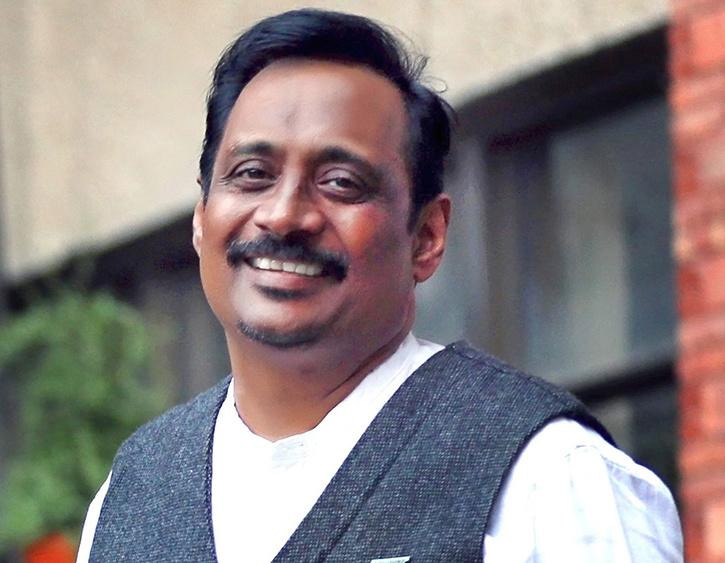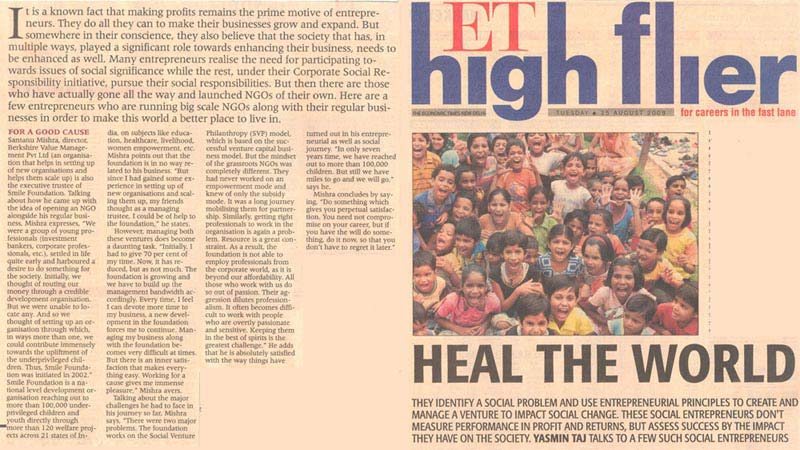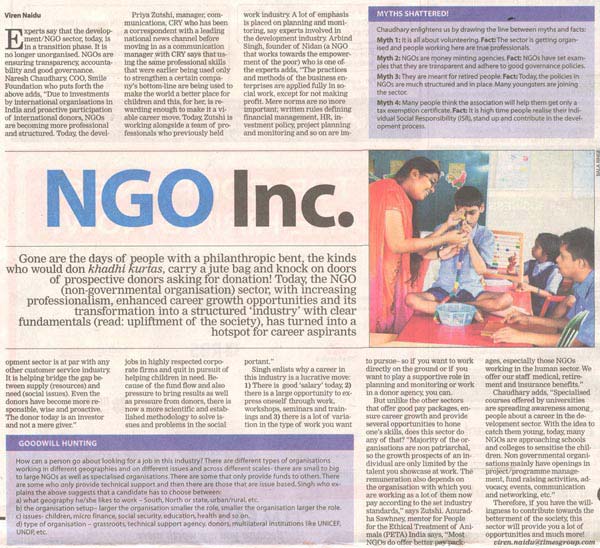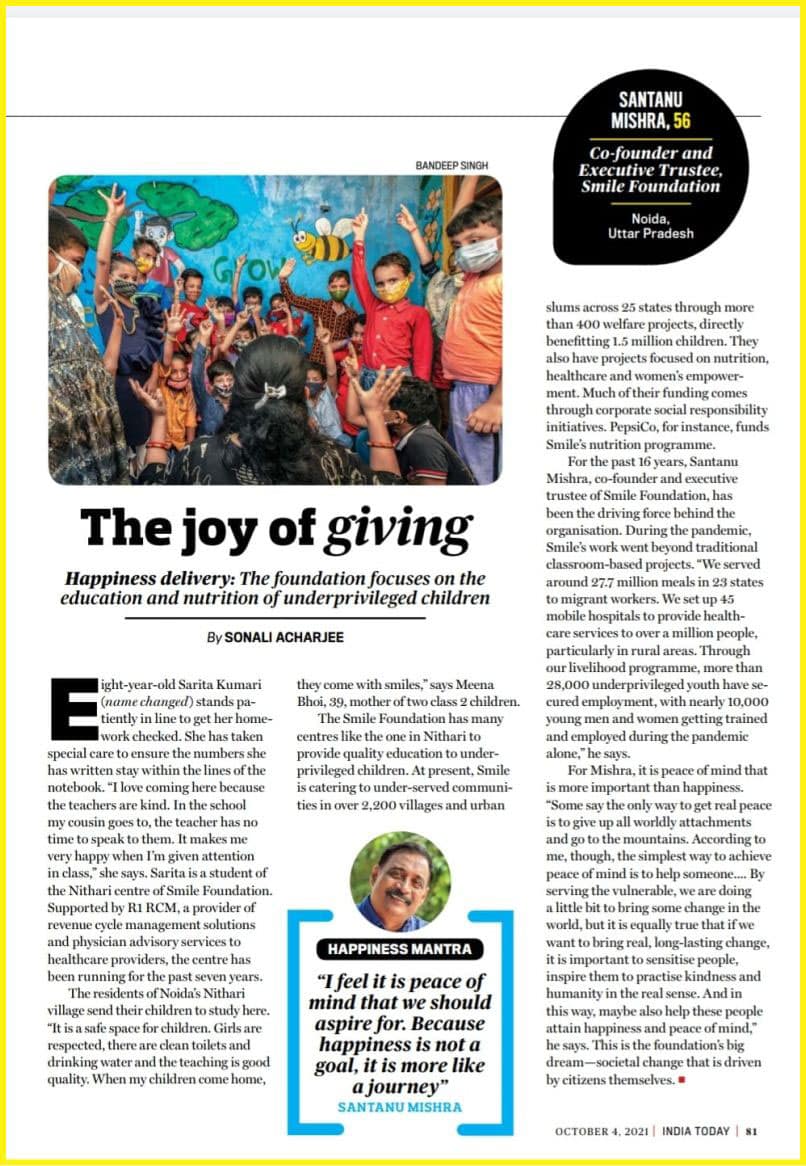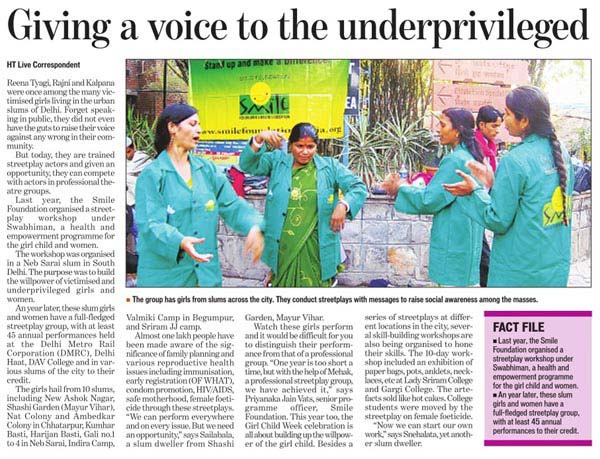Santanu Mishra (Co-Founder and Trustee, Smile Foundation) discusses how Covid-related restrictions on movement and social interactions, and complete dependence on adults to create a conducive home environment, have had an impact on the mental health of children. He also highlights the need for schools – when they reopen – to focus on more holistic development of children.
Based on your research and experience, what are the top three ways in which the Covid-19 crisis and associated lockdowns have affected the mental health of children?
Covid-19 has forced children to remain confined inside their homes. Prolonged school closures, lack of outdoor activities and social interactions, critical for the psychosocial well-being and development of children; and the uncertainty and fear around the Virus, has impacted children the most.
Fear and anxiety about their own health, and the health of their loved ones, can be overwhelming and disturbing for children. Access to news and information on Covid-19 developments due to increased access to digital devices and the overwhelming amount of coverage on mass media regarding the pandemic, further heightens their stress and anxiety of possibly losing their loved ones.
Adjusting to online education is another challenge for children. Our education system is more dependent on classroom teaching and most children could not cope with having to take responsibility of their studies. Besides, disruptions in connectivity, and limited access to digital devices – particularly in families with 2-3 children or those with limited means – added to the frustration experienced by children. Limited social interaction and online education are resulting in children drifting away from teamwork.
For children with less space at home, the whole family being present at all times due to the lockdown means that the children are dependent on the adults at home to create a conducive environment and this brings with it its own set of worries. This situation also makes children more vulnerable to abuse and violence – as their parents may be working from home and dealing with their own stress around work, health and finances.
They are likely to be the most affected due to being dependent on adults rather than being in control of things.
Is the impact more pronounced for some groups of children (age, gender, or household income) than others, and why?
The Covid-19 crisis and the associated lockdowns have generally affected the mental well-being of children. Children in more vulnerable conditions are most affected. At Smile Foundation, we mostly work with underprivileged
communities in 22 states across the country1, and we have seen that several parents have lost their livelihood and jobs. The resulting poverty and misery in families lead to frustration and violence, and children are most at risk in this situation, particularly girl children and children with disabilities. We are also finding cases of the education of girl children being discontinued as they are either made to carry out domestic chores or married early. Similarly, some adolescent boys are being pulled out of school in favour of work and labour opportunities.
There has been evidence of a shadow pandemic, that is, an increase in domestic abuse of women on account of Covid-19 and lockdowns. Do you think there have been similar implications for children?
Prior experiences of public health emergencies have shown that there is a high likelihood of an increase in violence, including gender-based violence, domestic violence or physical abuse against women and children in such situations. As preventive intervention during the Covid-19 pandemic, we are trying to sensitise children and their parents under our projects, on child safety, mental and physical well-being, and the available helplines to access if required. We make home visits and talk to children and their parents. We have also formulated a ‘child protection policy’ to guide the organisation’s related efforts, and organise sessions with children and parents on cyber security.
Increased screen time has been repeatedly cited as a detriment to the mental health of children. However, online classes have made it inevitable for children to use digital devices for a prolonged period, and this naturally makes it difficult for parents to restrict access. How much of an impact do you believe this can has on children, and how can this be dealt with?
Increased screen time is repeatedly cited as a detriment to the mental health of children. However, during the pandemic, children are spending more time on online learning, as this is one of the few mediums to help them stay connected with school education.
It is more important now than ever that we prioritise online safety and safeguard children from the adverse effects of increased screen time, such as exposure to information that is inappropriate for their age.
As part of our work with communities, we have also been counselling parents on cyber safety –how they need to guide and monitor their children to use these devices intelligently and in a manner appropriate for their age. Besides, we promote blended learning practices – whenever and wherever possible, we provide children with printed worksheets and course books. We also encourage safe science experiments at home, model-making, and assignments based on observation and research. This gives children a direction to study and the opportunity to study offline in a way that is engaging.
Given the restrictions on mobility due to Covid-19, what would you suggest are healthy ways to keep children occupied and physically active?
The mobility of children has indeed been severely affected due to Covid-19, which might lead to a myriad of health problems for them. Besides the promotion of blended methods of offline learning, we also provide online yoga training, to help children be conscious about being in good health. Gardening is another activity that we introduced to them, and the children seem to be enjoying it. We are encouraging children to engage in kitchen gardening, as this will help them meet their nutritional needs. We have also collaborated with many resource agencies and organisations, for example, WWF, to help children learn about nature through various activities. Sessions on hygiene, health and nutrition have made them aware about the importance of self-care and good health.
How would you recommend maintaining a healthy balance between keeping children abreast of the situation and ensuring that they understand the importance of following precautions, while also preventing them from developing a constant fear of the Virus?
We use a carefully designed, balanced approach while interacting with children. It is important to make them aware about the precautions and safeguards pertaining to Covid-19. It is also important to engage them in constructive learning, and assign them tasks to help their family and peers follow the precautions, which would make them more responsible. Children with anxiety would need to be appropriately counselled by mental health professionals.
Covid-19 and the associated lockdowns affected adults – with heightened anxiety and distress, both due to health and financial concerns. How might this adversely impact parents’ role as caregivers for children, and what measures could parents/guardians take to mitigate this?
The pandemic and the associated lockdown have affected families both in terms of health and financially. Loss of jobs and earnings, having to migrate to native places, fear of being infected with the Virus, and extraordinary uncertainty around the future, have been making parents anxious and stressed.
Our effort has been to try and connect with as many parents and families as possible, of the children we work with, to understand the challenges that they are facing and to guide them to avail the appropriate government schemes to support their livelihood and health. Through the “Smile On Wheels” (mobile clinic) and community health outreach programmes, we have conducted several awareness and service camps to sensitise communities regarding appropriate health practices, and provided general health check-up and counselling services by health experts and professionals. We have also carried out distribution of dry ration and hygiene kits to give vulnerable families respite for a month or two. We believe that the above interventions gave some relief to parents from their stress, enabling them to take care of their children more proactively and with patience.
How do you think the lack of in-person schooling has affected children? Would reopening schools with some Covid-19 appropriate protocols in place help?
Reopening schools with Covid-19 appropriate protocols in place, will facilitate better emotional and social development among children as the lack of in-person schooling has been affecting them adversely. Coming back to school, meeting their peers and teachers, studying in the learning-conducive environment of the school, will definitely help children cope, and make them comfortable. The learning gap over the past year and a half is a huge deficit, which we will need to address.
While reopening schools, the education stakeholders need to re-invent and re-imagine the current school teaching-learning system. It is important to not limit education to foundational literacy and numeracy with subject-based curriculums, but accept children as they are, observe their experiences and backgrounds, and address their age-appropriate nutritional, emotional and intellectual well-being as a whole. Doing so will certainly alleviate the mental health of children.



